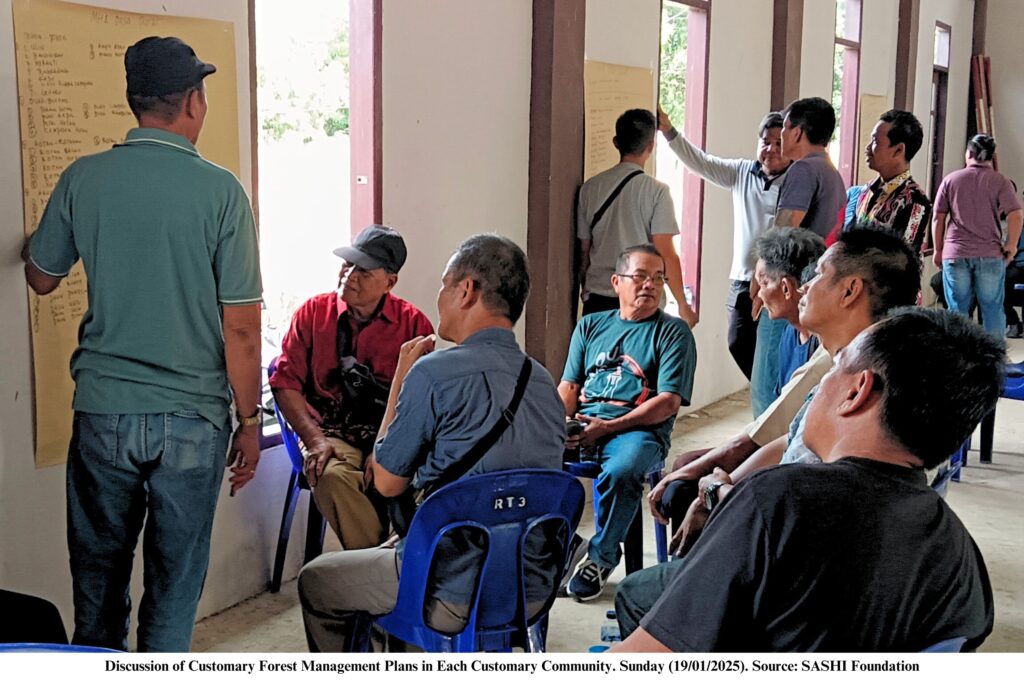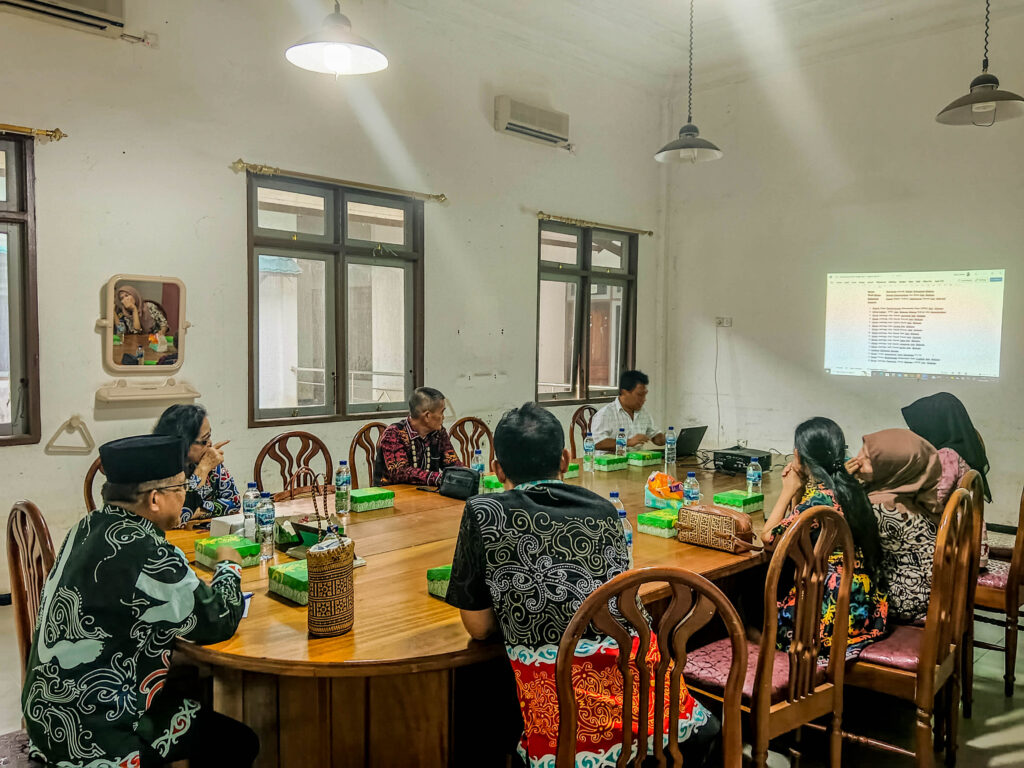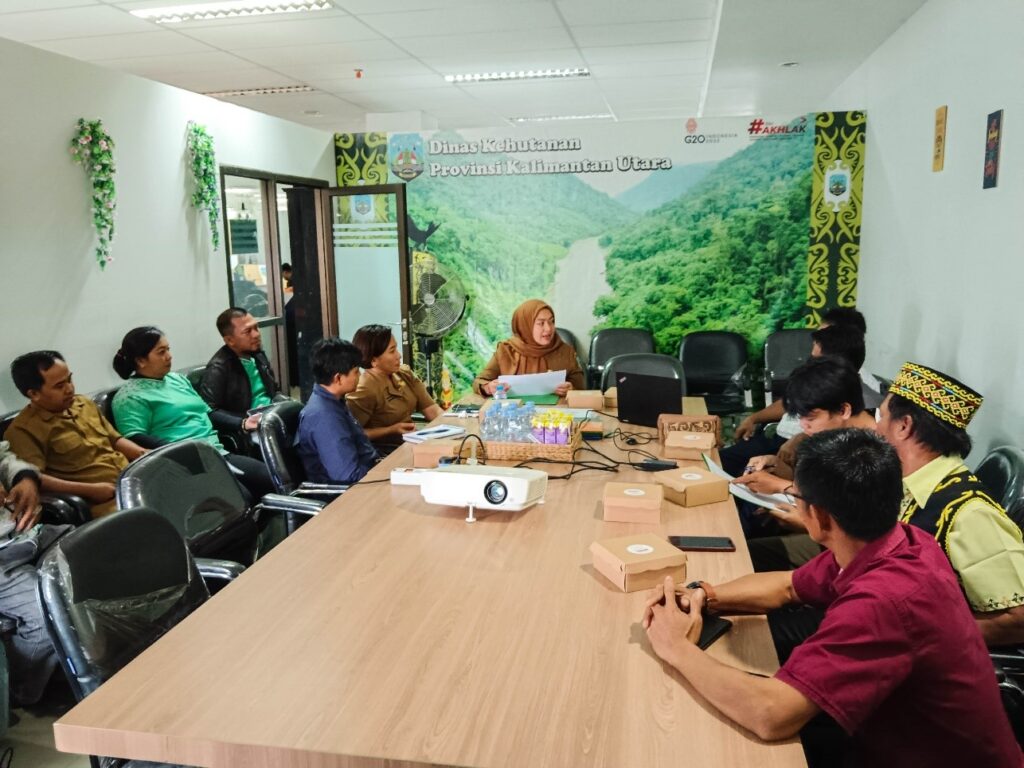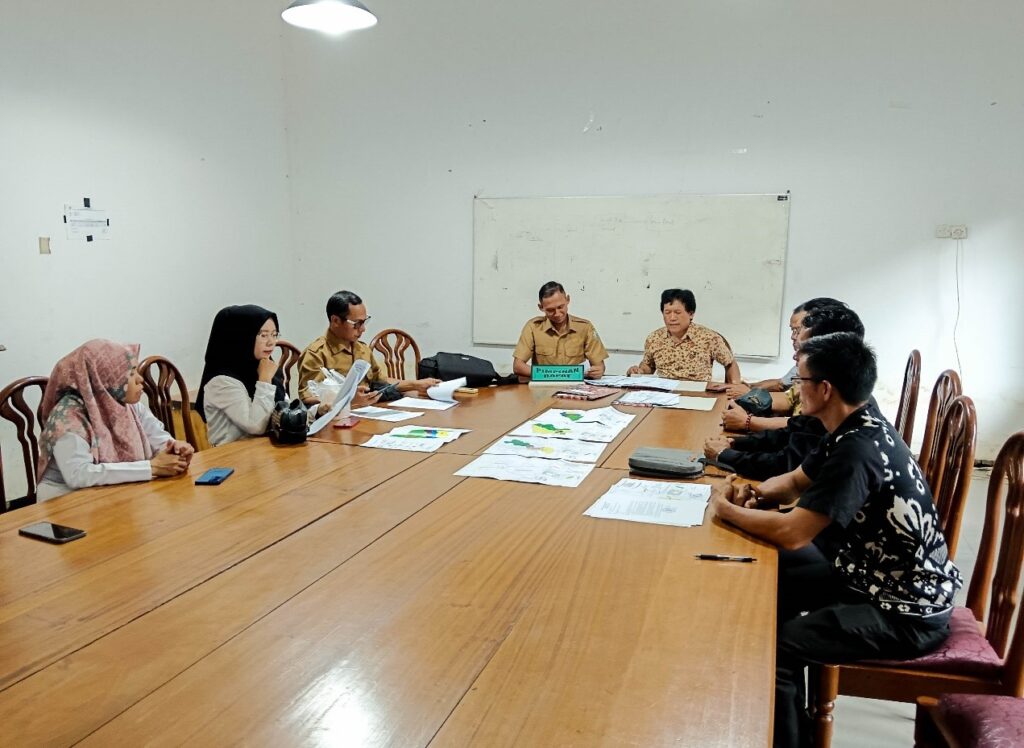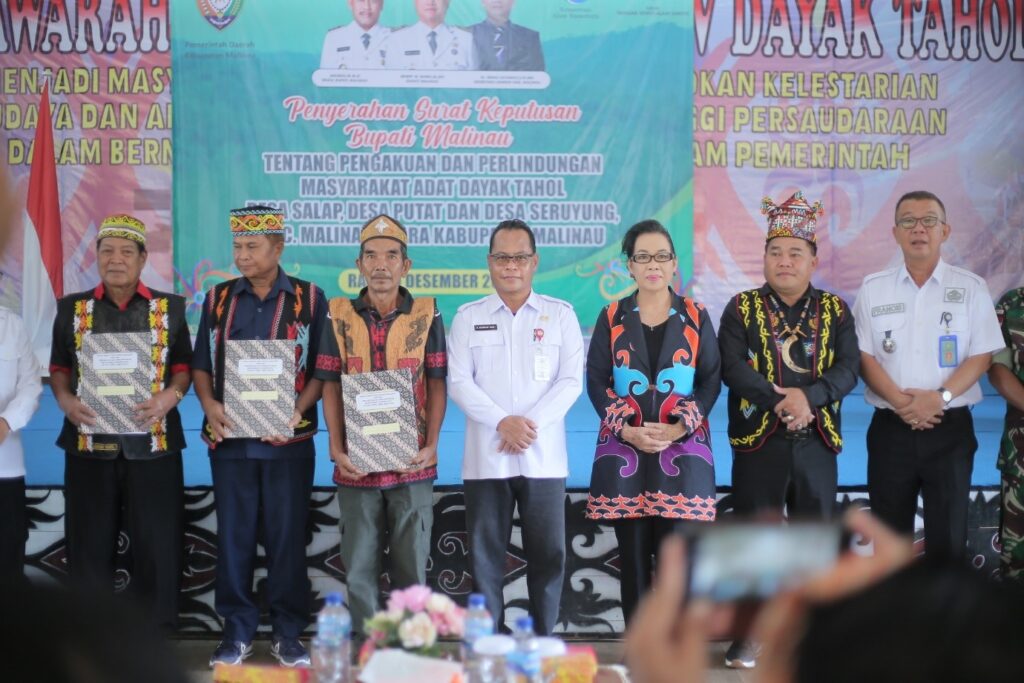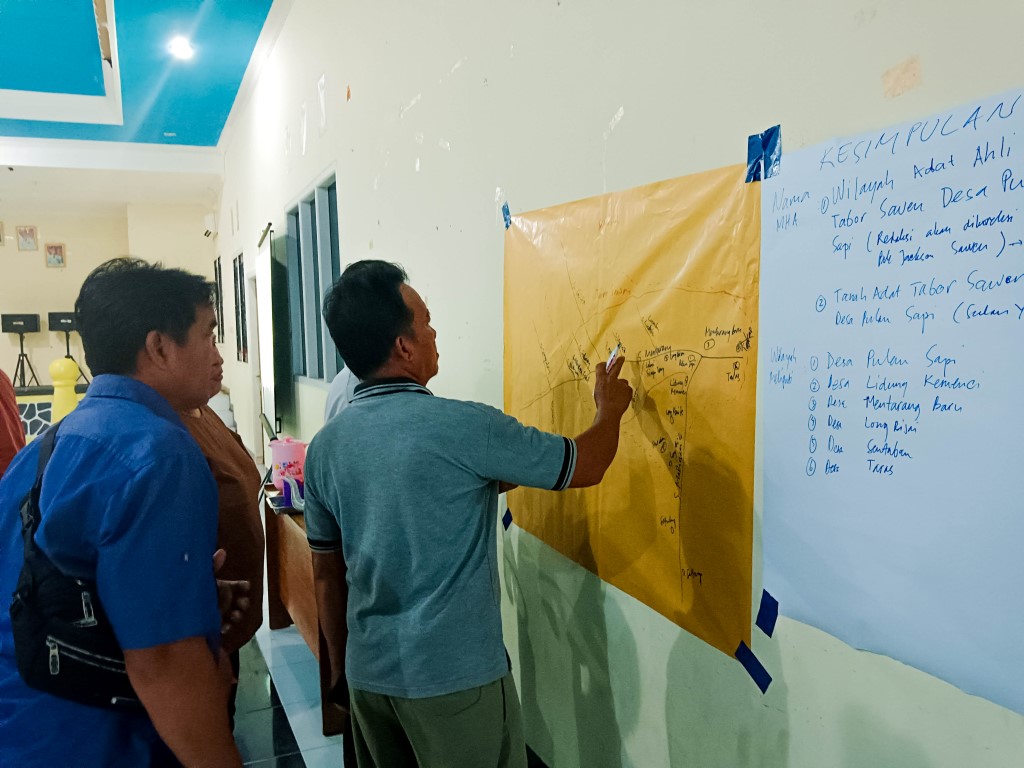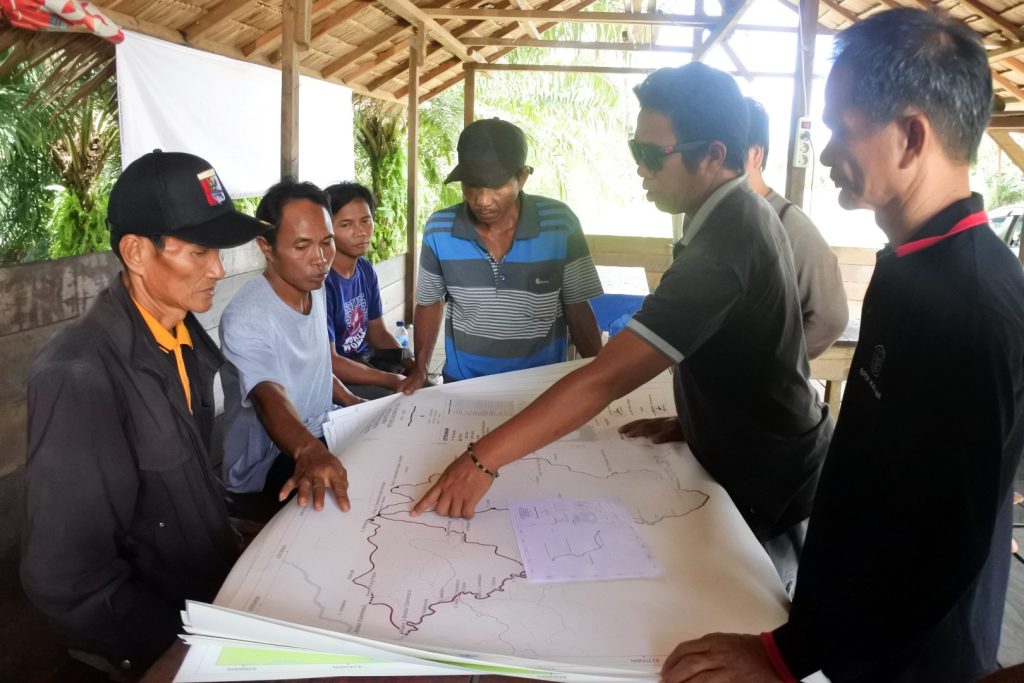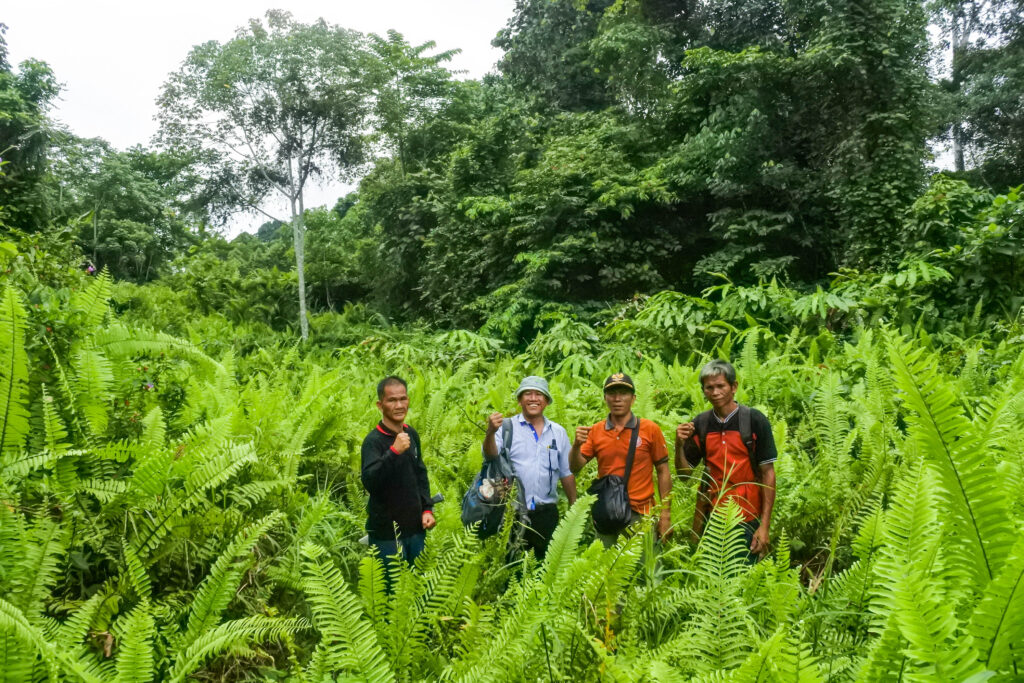
North Kalimantan
In addition to its work in Bali Province, SASHI also conducts customary forest facilitation activities and customary territory mapping in North Kalimantan, focusing on the Malinau Regency. In this regard, SASHI facilitates the process of customary territory recognition for the Dayak Tahol community in the villages of Putat, Seruyung, and Salap to secure a decree from the Regent of Malinau. Furthermore, for the customary territory mapping process, SASHI also facilitates the identification of customary territory boundaries in the villages of Pulau Sapi and Paking.
Why North Kalimantan?
North Kalimantan is one of the young provinces in Indonesia.
This province covers an area of 7.54 million hectares, with approximately 6.9 million hectares of forested areas. Some parts of this province belong to the Heart of Borneo, a tri-national area promoted by WWF and supported by the governments of Malaysia, Indonesia, and Brunei. North Kalimantan hosts two key biodiversity areas (KBAs): Kayan Mentarang and Sembuku Sembakung. The province's development focuses on green industry, making it the largest initiative in Indonesia.
SASHI Foundation has been active in Malinau Regency since 2022. Malinau is the largest regency in Kalimantan and is rich in natural resources (including timber, coal, and other minerals such as alluvial gold).
However, the Gross Domestic Product (GDP) of the regency is much lower compared to other regencies in the region.In 2021, an estimated 7.3% of the regency's population lived below the poverty line, earning less than Rp 650,444 per month. Healthcare and education services are also minimal, with most districts only have one high school, and hospitals are located only in the districts of South Malinau, North Malinau, and South Kayan. The regency has a population of around 74,000 people, most of whom rely on shifting agriculture, hunting, and gathering from the forest. Most districts have a population density of less than 1.0 person per km2 . The indigenous Dayak population is prominent, with around 20 different languages spoken in the regency. Additionally, approximately 11.4% of the regency's income comes from agriculture, forestry, and fisheries, but the majority (48.3%) comes from mining.
The Local Government of Malinau Regency has Prioritized Agricultural Development for the Next 5-Year Plan to Develop Community-Based Economic Development as 42% of the Regency's Population are Farmers.
The Ministry of Environment has also allocated 13,588 ha for social forestry and has provided 24,825 ha of village forests for 6 villages. Furthermore, the local government has committed to involving customary law communities in development efforts considering that most of Malinau's territory is customary land, and approximately 86% of the regency's territory has been mapped as customary land.
In Implementing the SASHI Foundation's Programs in North Kalimantan, the Foundation Establishes Cooperation with Various Stakeholders.
The SASHI Foundation collaborates with the Local Government of Malinau Regency, the Nature Conservation Foundation of Indonesia, the Samdhana Institute, the Customary Community Affairs Management Body, the Kayan Mentarang Customary Community Consultative Forum , and LP3M, in facilitating the recognition of indigenous people and planning the development of SASHI Foundation's programs in North Kalimantan. In the future, the SASHI Foundation is committed to continuing to support conservation and environmental protection efforts by involving a wider range of stakeholders, and promoting sustainable development in North Kalimantan, especially in the two KBA areas.
